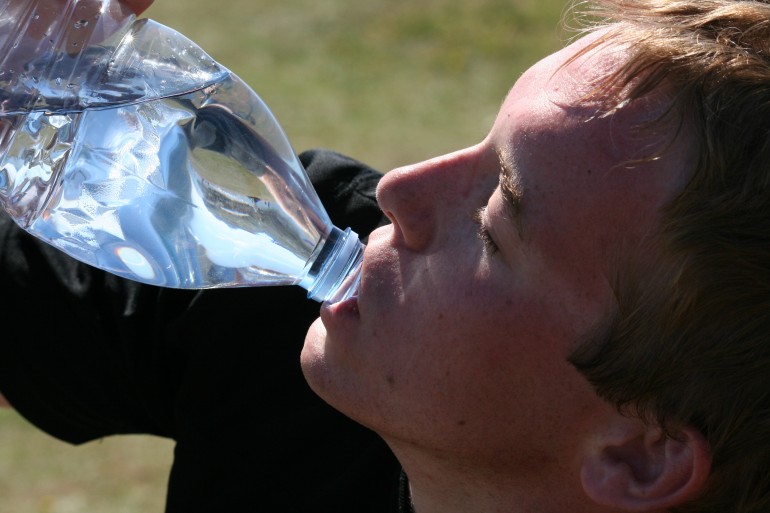
Even with today’s scientific advancements in the study of exercise and sport, muscle cramps are still somewhat misunderstood and unpredictable. Muscle cramps can elicit anywhere from minor discomfort to debilitating pain; therefore, it is in the best interest of the participant to minimize the chance of this occurring.
The strongest argument has always been that dehydration plays the most prominent role in muscle cramps. However, these spasms also seem to be related to overexertion (pushing to the point of exhaustion), fluid loss, electrolyte imbalance, and/or inadequate fitness/conditioning.
Here are some possible nutritional* ways to help reduce the risk of getting muscle cramps either during training/competition or recovery:
Stay hydrated
Ensure that you are properly hydrated before, during and after your workout. Drink approximately 8oz of water every 15-20mins when engaging in long and strenuous exercise sessions (may need to be increased when training outdoors in the sun or any situation where you will sweat more than usual).
On a daily basis, your urine should be clear and pale yellow; so ensure that you drink enough through the day to keep it that way.
If you know you will be drinking alcohol following a training session, you must work extra hard to stay hydrated. Prior to drinking the alcohol, try to intake a lot of non-alcoholic fluids to re-hydrate (replace fluids lost through sweating) and counteract the dehydrating effects of the alcohol.
Calcium
There is still a scientific debate with regard to the role of calcium in muscle cramps.
Calcium is essential to muscle contractions; therefore, theoretically, a lack of calcium could lead to complications. If your calcium intake is insufficient, your bones will act as a calcium reserve; however, it is better to not have to rely on this method for calcium utilization. Therefore, make sure you are ingesting dairy products, leafy dark green veggies, and or Tums/calcium supplements.
Potassium
Although excess potassium loss through sweat is usually not an issue, electrolyte imbalance may still occur and play a role in cramps. Keep potassium rich foods in your daily diet (preferably fruits and veggies) to help maintain your electrolyte balance.
Sodium
Health conscious individuals tend to be aware of their salt intake and minimize it due to erroneous fears of developing hypertension. It is wise to moderate your salt intake, but as an active person who continuously looses salt through sweat, it is wise to keep the balance of sodium in the system. During very long training bouts, consider a sports drink or add some sugar and salt to your water.
*These methods are not necessarily scientifically founded – they are merely suggestions based on the reference text. Your best bet it to stay hydrated and in the best shape you can to avoid the wrath of muscle cramps.




